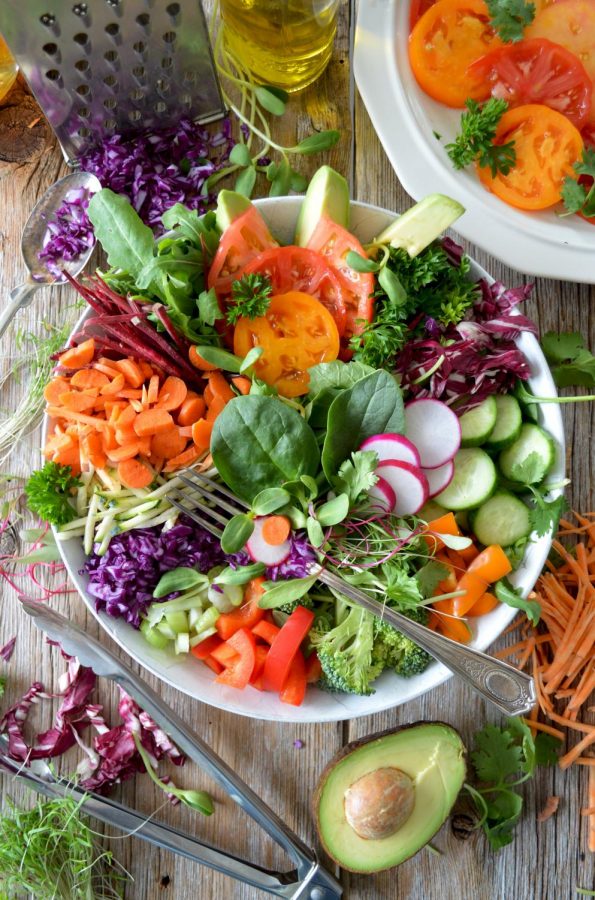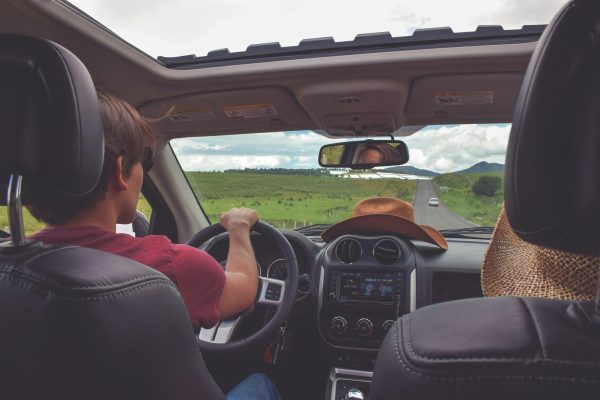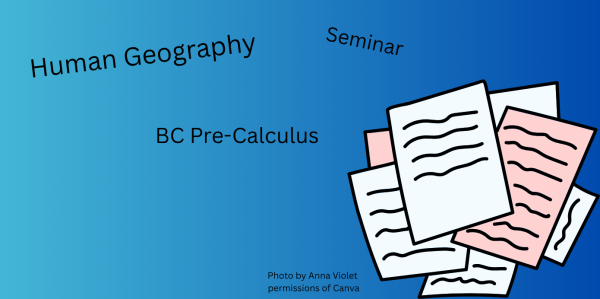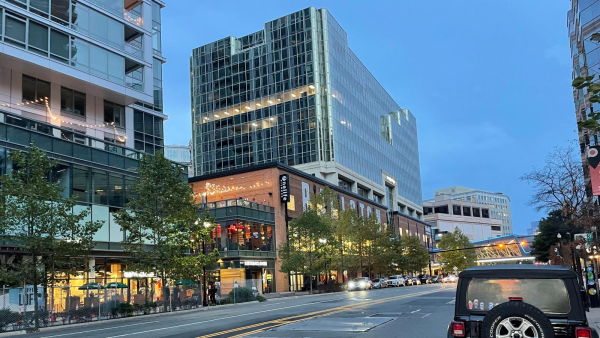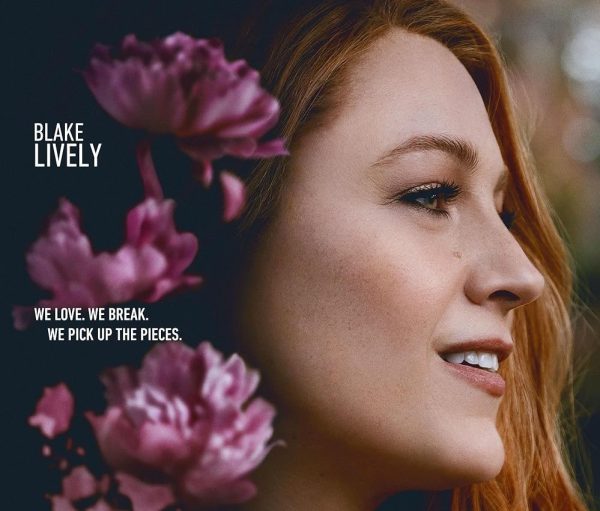Student veganism: balancing change and comfort
Students feature their successes and struggles with a vegan diet and lifestyle.
In the past weeks, Oakton’s AP Environmental Science class has been studying the waste unit by embracing action and challenges. After tracking and measuring daily waste for a week, they were assigned an optional challenge of pursuing veganism. A majority of her students pursued this, some being Aditi Iyengar, 12 and Laila Al Mukhtar, 12. While Aditi has had experience with the vegan diet and has sought to challenge herself further with also eliminating refined sugars, Laila sampled this lifestyle but is deciding not to continue it. Alternatively, Monica Louis, a vegan for three years who aspires to study nutrition in college, shed some light on her transition and experience.
What personally inspired you to pursue or try out veganism?
Aditi: “I’ve been vegetarian my whole life for moral and cultural reasons, but I decided to go vegan mostly for the environment. Our diets are a huge part of our ecological footprints, and going vegan was a way for me to reduce mine.”
Laila: “There is the ethics aspect, which I already aim to pursue because I have been a vegetarian for a while now. I took this challenge as a way to go further with that. A sustainable lifestyle is very important to me so I try to be sustainable in other areas of my life with reusable bags at the grocery store and things like that. I know that vegetarianism is good, but veganism is better for the planet.”
Monica: “The thing that definitely inspired me was looking at the way that animal products are produced, manufactured, and shipped out across countries. There are unhygienic living conditions that animals have to endure and how that can make us sick. I wanted to avoid getting sick from that by pursuing a vegan diet free of stuff that would make me ill.”
What were the most significant challenges you faced?
Aditi: “At first, going vegan was a bit difficult because there are often animal product ingredients in foods that you wouldn’t expect. But I just learned to always read the ingredients carefully, and it’s worked out fine!”
Laila: “Because I am a vegetarian I already have some limitations on what I can eat. My diet is not amazing right now, a lot of the food I eat is diary-based. I realized that lots of vegan food require cooking and going out of your way to make food that actually fills you up which is hard for me because I often feel tired and lazy after a long day of school. I am considering trying it out again once I start being healthier.”
Monica: “I would say eating a lot of different things because you need a variation protein, fiber, and vitamins from other sources I’ve never had. I was having to try all these new foods and to get all these nutrients that I needed.”
What were the things that you enjoyed? Recipes, feelings, habits, etc.?
Aditi: “I’ve really enjoyed experimenting with vegan baking. Baked goods were something I loved before going vegan and I didn’t want to give them up. Luckily, there are tons of recipes for vegan versions of any dessert you can think of and it’s been fun learning how to bake with unconventional ingredients.”
Laila: “Planning worked, but the cooking didn’t really work. I found some recipes. I followed a meal plan that didn’t work. A lot of my food was Mediterranean based because I know that the Mediterranean diet really accommodates for more plant-based dishes. I made some salads with peppers, chickpeas, spinach, things like that that tasted good and made me feel good about what I was eating.”
Monica: “My favorite thing about being vegan is having avocado with everything. Legumes too. I’ve tried new recipes that had me experiment with more spicy foods and different things and seasonings. Being able to make my own meals made me feel more independent.”
How strict was your diet? Did you allow any exceptions why or why not?
Aditi: “Recently I’ve become more strict with my diet, but I still use non-food products that aren’t vegan. I continue to use things like beeswax chapstick or other skincare products that I bought before going fully vegan because I don’t see a point in not using what I already have. In the future, though, when buying products, I hope to buy vegan ones.”
Laila: “It was really hard for me to adhere strictly to a vegan diet, I essentially allowed myself to have dairy once a day. I wanted to try my best but wasn’t able to really commit all the way.”
Monica: “I did not allow any exceptions. Even in the beginning did not slip up or anything. I’ve heard that being vegan, over time your body starts to adjust to not having dairy or meat; people would be vegan for more than a year and they would eat maybe a piece of chocolate cake and get horrifically sick by it. So basically, being worried about getting sick has kept me on track.”
Do you consider yourself a better person for being vegan? Or at least a better consumer for minimizing your dairy and meat consumption?
Aditi: “I don’t think I’m a better person than others because I’m vegan. I’ve just been in a privileged position in which I have control over my diet and I can choose vegan products. A majority of people in the world don’t have that option. That being said, going vegan has made me feel better about my environmental impact because I feel like I’m doing my part.”
Laila: “I think during this time I thought a lot more about what I was eating and putting into my body. This is definitely something many vegans have to do, you have to make sure the ingredients don’t contain animal products. I felt better because I knew I was doing something better for the planet, at least making some impact, even though I wasn’t doing it all the way. But I’m doing better than I was before.”
Monica: “I wouldn’t say so. For me, being vegan is easy because I have a lot of freedom and choice like going to the grocery store and making my own meals. For other people, I understand they might not have enough money or time to fully commit to being vegan. For example, in other countries, plant-based milk here is maybe $3-4, but in other countries, it can range up to $7. I don’t want to seem like I am the better person because I am vegan when others don’t have as much as an opportunity to.”
What are the things that you’ve learned about yourself in this process?
Aditi: “I’ve learned that I’m more adaptable than I thought I was. Surprisingly, I haven’t really missed a lot of the foods I used to eat before going vegan. I also learned that it’s okay to be flexible. My diet will probably never be 100% vegan and perfect, but it’s all about reducing my environmental footprint, so as much as I can do that, the better.”
Laila: “It is really hard for me to stick to things and make changes in my habits, but I am willing to improve in the future.”
Monica: “I would definitely say I’ve learned more about myself and the type of person that I want to become when I grow up. Being vegan, I’ve learned about how much I need to live; how many calories, how much protein, iron, zinc that I need to have. I’ve become so much more aware of the food I am putting inside my body too. I feel like we don’t really learn to take care of ourselves. Growing up, we don’t know how many nutrients and vitamins we need and I feel like it is really important. I know my needs now. I know my needs when I am middle-aged. I understand needs for children. Growing older and older, knowing is especially important. And I think this has inspired me to study nutrition in college.”
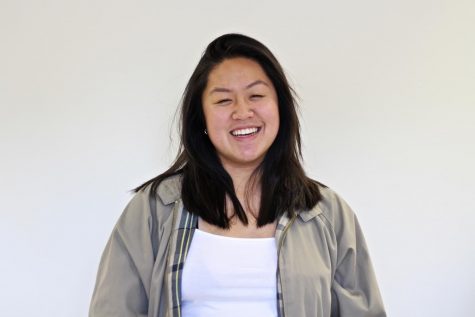
Welcome to the Oakton Outlook! This is my fourth year of writing for the school newspaper and my second year of being an Editor-in-Chief. We have an amazing...



